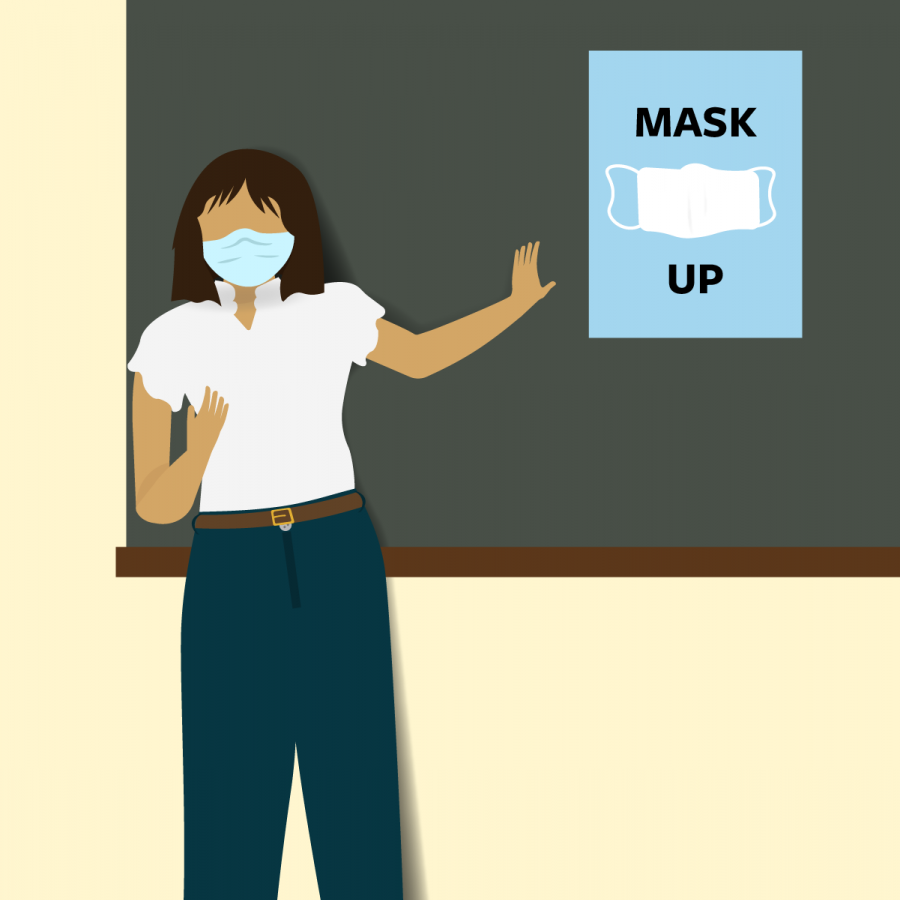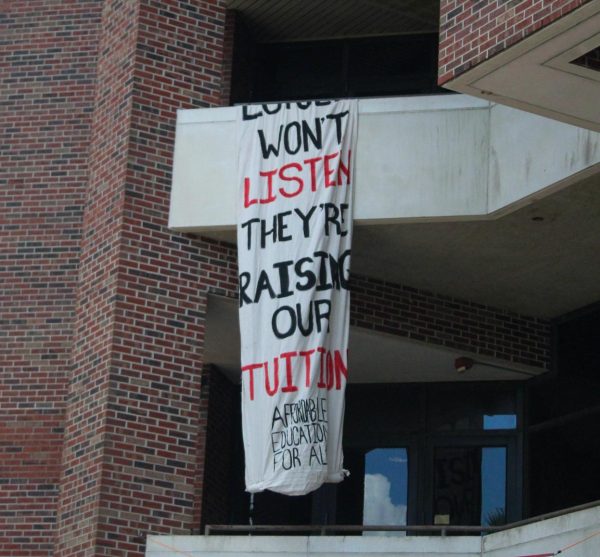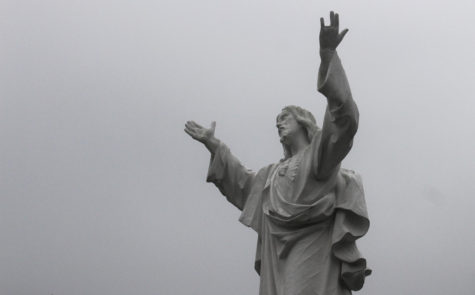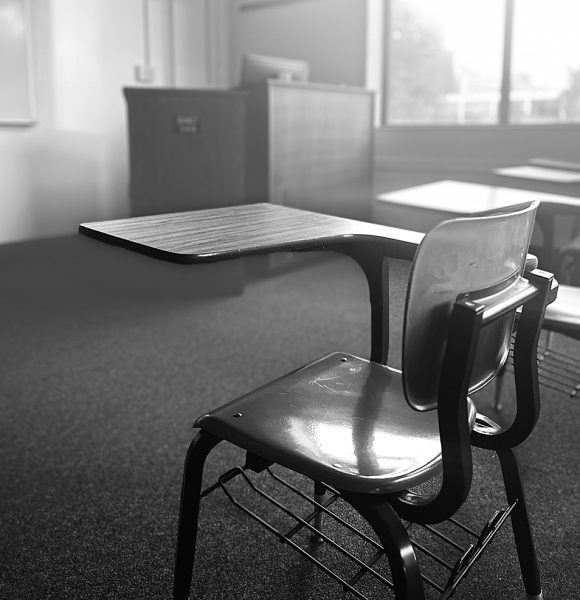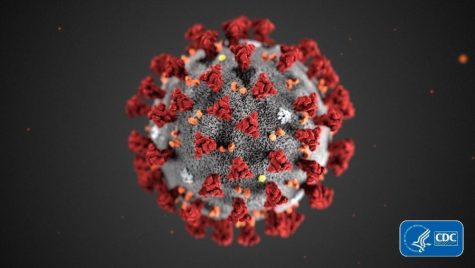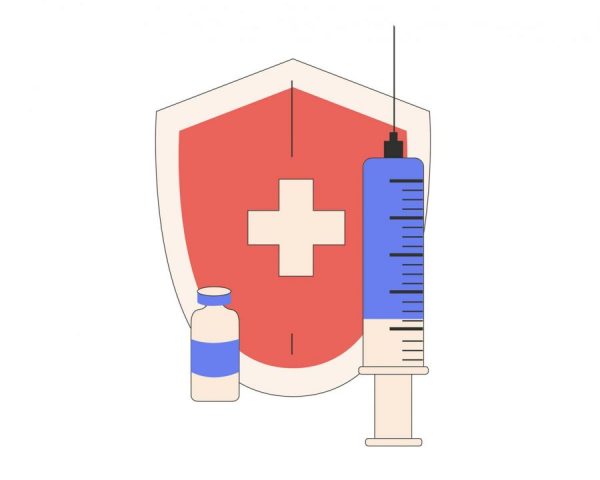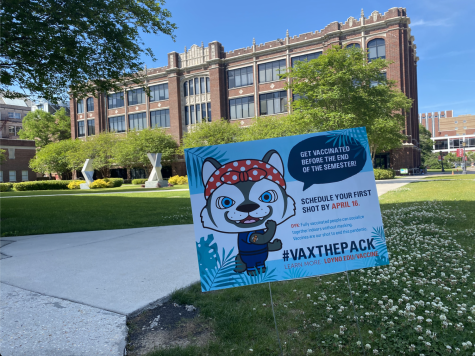Professors express their concerns about another COVID semester
The Loyola community experienced a false start this year, coming back to a fully in-person campus for only one week before the semester was upended by a Category 4 hurricane.
Some Loyola professors were already concerned about COVID-19 risks going into this semester. Now that students, faculty, and staff are returning for what feels like a repeat of the first week of the semester in the aftermath of Hurricane Ida, their concerns remain largely the same.
Many faculty and staff, although vaccinated themselves, live with children who are still too young to receive the vaccine. Assistant Nursing Professor Amrita Datta has a three-year-old daughter and said she’s her main concern.
“I don’t want to hurt her because I’m going to work,” she said.
Datta said it helps to know that the majority of people on campus are vaccinated. Even though knowing this makes her feel better mentally, she said it still doesn’t take away the fear of bringing COVID-19 home.
“No matter how high the vaccination rate is, unless the entire population is vaccinated, it only takes one to cause a breakout,” she said.
Justin Nystrom, assistant professor of history, has two children ages five and seven. He said he doesn’t want to bring COVID-19 home to his children and will feel a lot better when they can be vaccinated.
“Children are dying, which I find frightening,” he said.
Despite his concerns, he said he thinks the overall risk of contracting COVID-19 on campus is low. However, he said he was frustrated that the University offered so many exemptions to the student vaccine requirement, especially now that Pfizer is FDA-approved.
“This is a vaccine. It’s a collective health issue,” Nystrom said.
Visiting Assistant Professor of Mathematics Christopher Perez feels similarly, saying he wanted some clarity on the “philosophical or deeply held beliefs” exemption to the vaccine that the University was offering students.
“Are we going to allow an exemption for someone who deeply believes this is some sort of 5G microchip they’re trying to inject in people?” he said. If the University was clearer on the guidelines for this type of exemption, Perez said he would feel much more reassured about it.
He said he is also concerned that the dining hall on campus is not requiring vaccines despite the fact that the City of New Orleans is requiring the same or a negative PCR test result to enter restaurants.
Now that students, faculty, and staff are returning to campus after evacuating across the country for Ida, many professors’ concerns are amplified.
Voice Professor Luretta Bybee was already “stuck between a rock and a hard place” before the hurricane hit. As a professor of classical voice, Bybee said singers are considered super spreaders, but that having to remain masked during voice lessons is incredibly difficult. Although teaching online is an option, she said you lose an aspect of what’s necessary to teach applied voice whether you’re online or in person and masked.
After the hurricane hit, Bybee said she feels like “we’re dealing with two major battlefronts” now with COVID-19 and the climate crisis.
“My concern has been that it feels like COVID itself has sort of been shoved to the side because we’re trying to get through the weather situation,” she said.
She said while she was evacuating she wasn’t even thinking about COVID-19 and even had to remind herself to bring masks with her.
Datta thinks that people may have let their guards down regarding COVID-19 as they evacuated because they were experiencing something traumatic.
“For all of us coming back, even if we’ve been careful, you know, who knows?” she said.
Ferris Distinguished Professor of Law M. Isabel Medina also has her fears about what is going to happen as the Loyola community returns from the hurricane.
“We had a massive displacement of people going various places and they’ve all come back. We’re going to have another two weeks of watching to see what happens,” she said.
Medina said that, despite Loyola’s high levels of vaccination, Loyola “is not an island.” She noted that the city and state have a higher percentage of unvaccinated individuals than Loyola and that people leaving Loyola return to this unvaccinated community everyday.
Despite their COVID-19 worries, many professors feel Loyola has been doing a good job keeping everyone safe.
Datta said she thinks Loyola is doing its best under its financial and space restrictions.
“The messaging that we hear from our upper administration is probably the strongest I’ve heard in any university. The emails we get and the amount of transparency we get kind of inspires you or helps you be better for yourself and for others,” she said.
Bybee believes Loyola has done really well throughout the pandemic and that it’s constantly looking for the “next best way to take care of things.”
Dean of the College of Music and Media Kern Maass said the University has listened to the concerns of faculty and staff and has “tremendous empathy” for the situations COVID-19 has forced everyone to face. Maass said the University and the College of Music and Media has followed science when making decisions, continues to comply with city mandates, and has a health team on campus that includes Oschner healthcare professionals to keep everyone safe.
“Layered over all of those strengths are our Jesuit values that also guide us in providing appropriate accommodations to those who need them,” he said.
Maass said that he feels safe on campus because he is vaccinated and masks everywhere but understands that this is not the same for everyone. Now, with around 90% of the Loyola community vaccinated, Maass said he believes Loyola is more protected than last year.
“That bubble, layered with masks and a community that cares for and about each other, gives me great confidence,” he said.
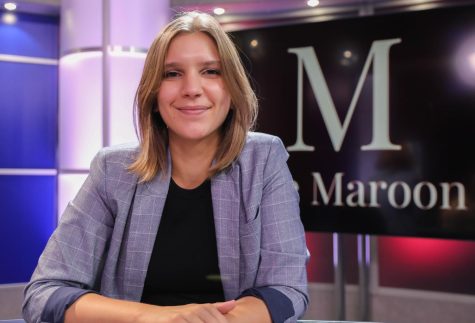
Madeline Taliancich is a senior at Loyola University New Orleans studying theatre arts and journalism who grew up just half an hour outside the wonderful...


